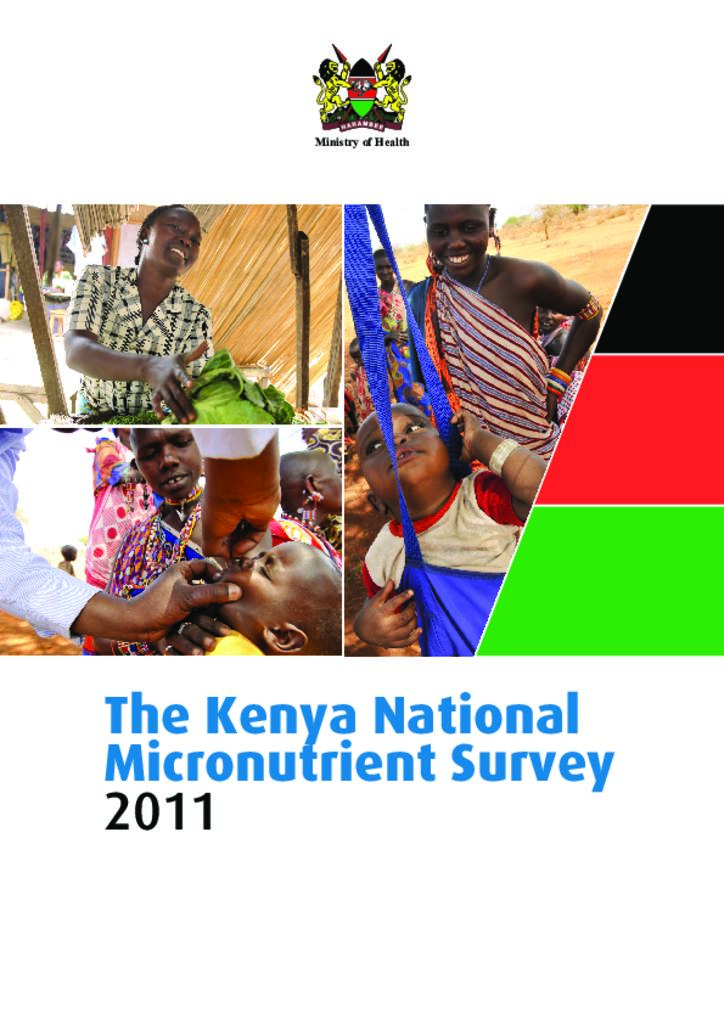This report presents the findings of the Kenya National Micronutrient Survey (KNMS) conducted in 2011 to generate data on the magnitude and distribution of micronutrient malnutrition, including nutritional status and a number of related diseases. The aim of the survey was to establish the prevalence of micronutrient deficiencies, protein-energy malnutrition, and infectious diseases among the Kenyan population to provide policy makers and programme managers with the information they need to effectively plan and implement micronutrient interventions.
The design of KNMS 2011 was cross-sectional using a two-stage stratified cluster sampling methodology that produced representative estimates for the following three domains:
- Kenya as a whole;
- rural areas of Kenya; and
- urban areas of Kenya.
Compared to the previous national micronutrient survey results, the survey found that there is a considerable improvement in the micronutrient status in Kenyan population except for zinc deficiency whose prevalence was higher. This may be attributed to the combined impact of the programs implemented by the Ministry of Health and partners. What needs to be done now is to scale up the implementation of high impact nutrition interventions so that further gains can be realised.
